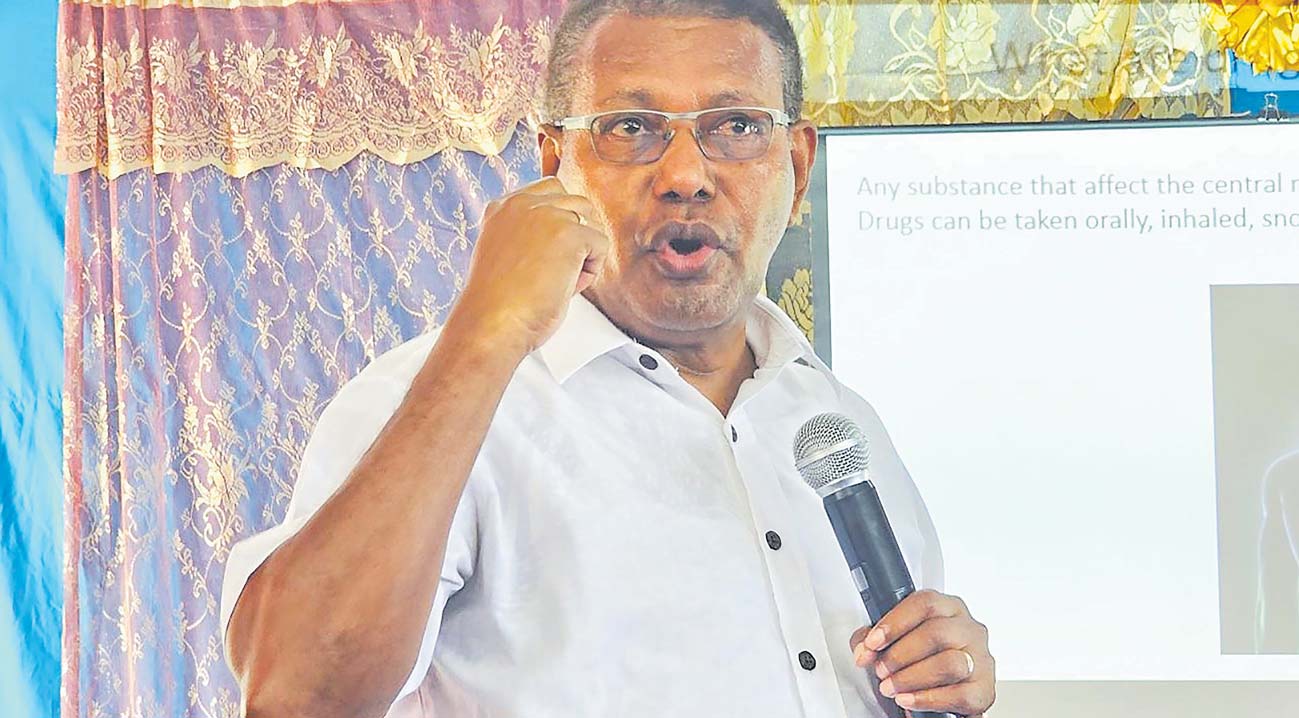Authorities have issued a warning against sharing of needles and “bluetoothing” as drug cases in schools around the country increase.
Substance Abuse Advisory Council acting CEO Josua Naisele also flagged potential dangers of sharing different blood types, saying this is very risky and can have serious “adverse effects” causing a reaction to the body and leading to possible death.
He also warned that 387 cases of children abusing inhalants were recorded last year, with students not just abusing glue, but also hand sanitizers and premix.
Mr Naisele also said there were 256 cases of alcohol consumption, 2353 cases of suki, 1407 cases of tobacco and 240 kava cases in schools.
“There is a new thing that is happening right now – drugs and ‘bluetooth’,” Mr Naisele said.
“Drug users plunge a syringe of diluted methamphetamine into his blood stream, drawing first blood and sharing the syringe with the second person, who then pass it on to the third.
“The police say that the cost of one gram is about $50. Sometimes, they cannot afford that, so they put in for the $50, $10 each. They buy the drug and share the blood.
“They pull out the blood from somebody who has meth inside and inject themselves.”
Mr Naisele said this was very risky and that nobody should share unmatched blood.
“Serious adverse effects of sharing unmatched blood can cause reaction to the body and can lead to death.
“There are various types of blood. Group A cannot give blood to O and A cannot give blood to B.
“So, if A gives blood to O and O gives blood to B, it can go unmatched. The person who gives blood to another, their blood types should match.
“So, these people sometimes are not aware of that. They never fear getting HIV/AIDS. Another danger of sharing needles is the transmission of Hepatitis B and Hepatitis C.
“There is a danger of getting bacterial infection at the injection site as well as passing bacteria into the blood stream. This can cause severe infections.”
Mr Naisele also highlighted the increase in HIV cases.
“In 2022, the Ministry of Health reported 275 HIV positive cases and in 2023 it recorded 415 cases.
“If you look at the age breakdown – 24 per cent are between 20 to 24 years, 20 per cent are between 25 to 29 years, 26 per cent are between 30 to 39 years, 8 per cent are adolescents and 2 per cent are less than 10 years of age.”


